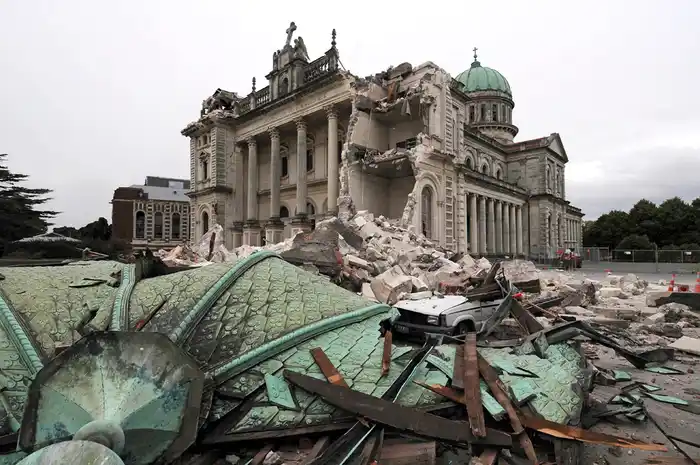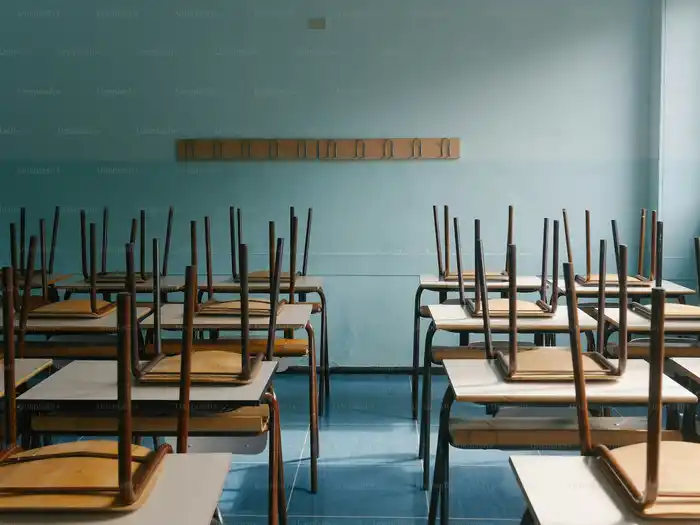In the aftermath of the 2011 Christchurch earthquake, schools in the city faced an unthinkable challenge: how do you return to normal? 15,000 pupils had been wrenched from their usual routines overnight - how do you bring them back?

Kiwi educators recognised that – above everything – school provides “a calm space,” essential after a traumatic crisis. That thinking informed their entire approach: they prioritised getting students into classrooms above all else, to get them back to that place of greatest safety. The evidence says they succeeded.
Loss and labour🔗
Looking at our own coronavirus crisis, Professor Carpenter at Evidence for Learning has discussed a similar need for a ‘recovery curriculum’; a curriculum to repair the “5 losses, of routine, structure, friendship, opportunity and freedom” that have been suffered by pupils during the lockdown.
To describe these as “losses” is true and right. Everyone in the country is feeling a sense of loss; we don’t need to empathise with school-less children, we’re experiencing it first-hand too: our adult structures of work, politics and our social lives have all been disrupted and curtailed.
But in ten years, how keenly will that “loss” be felt? When the government bonds mature and the bills need to be paid, will we as a country still remember the collective feelings of dread and confusion? Today, no one doubts the magnitude of the situation. We may not be able to see all its ramifications, but we all know it’s there. In the 2030s, things might not seem so clear.
Which is why we need to think of these not as “losses” – losses of school routine and structure – but as labour. Feeling withers, emotion fades, but raw economic reality endures.
The work of living🔗
Discourse about emotional labour has grown over the last few years – even more so in the course of the pandemic – but the role of schools is sometimes overlooked. It’s easily done: how do you measure “safety” on spreadsheet? How do you track “security” on a league table?
Schools are not factories for exams, but a vast project to provide every child in the country with the structures and environment they need to live happily and grow safely. Regulating your life is a job, and like any job it requires training. Children do not have the skills to regulate themselves, so that job has to be done by someone.

In normal times, in normal terms, schools share this labour with parents, alongside their other (important) role of providing academic teaching and learning. But in the lockdown, that burden of labour has shifted entirely to parents. For some, this is manageable – if not exactly enjoyable – with a house large enough and wi-fi fast enough to accommodate everyone in relative peace. But every teacher in the country has a story of what they have done to help those who do not have these simple luxuries – but no number of loaned laptops will plug that gap.
For a parent to carry this additional burden would be a challenge at the best of times; to do so during a global crisis, in a small house, whilst juggling your own economic uncertainty, is Herculean. Like most crisis labour, it has fallen disproportionately on those that are least able to carry it: those families with shared bedrooms or precarious employment or acute needs. School is an essential social service, existing to redistribute that labour more fairly. Once the schools gates have closed, the weight comes crashing down, hitting the poorest the hardest. This current crisis is summer holiday free school meals, writ large.
Online, offline, bottom line🔗
There will be a committee room somewhere in the bowels of the DfE – perhaps not in this Parliament, but maybe the next – where a bright young Spad presents a glossy deck showcasing the brilliance of the Oak National Academy or Google Classrooms during the pandemic and asks: if it worked then, why not now? With a balance sheet steeped in red, the cost savings of digital learning will look increasingly appealing.
It’s true that many pupils have continued to learn during the lockdown, and that teachers everywhere have gone through a crash-course in digital distance learning. But to see that as an evolutionary step for education is to miss the point of schools and the job they do. These have been emergency measures, filling the breach in normal practice. Just because the lifeboats float doesn’t mean you scuttle your ship, even if the fuel bills would be cheaper.
If pupils are not in a classroom with a trained teacher, they don’t magically stop needing the structure that the school environment provides. Someone, somewhere, has to provide it, or those awful “losses” become the norm.
In the years to come, this pandemic should stand as a lesson in the value of this labour – not as an excuse to outsource it back to parents.